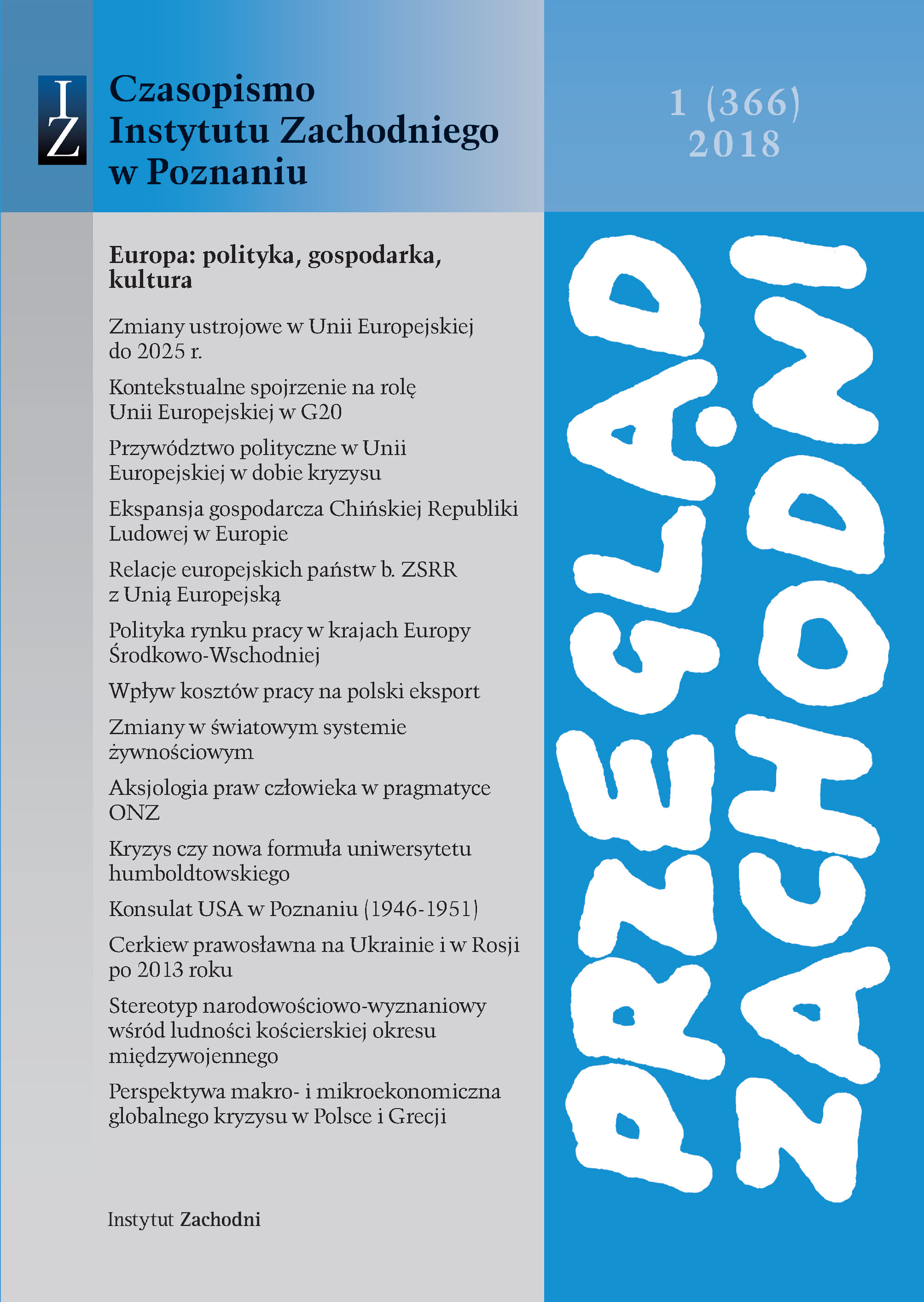Cerkiew prawosławna na Ukrainie i w Rosji po 2013 r. wobec wyzwań politycznych, konfliktu rosyjsko- ukraińskiego oraz pytań o granice suwerenności
The Orthodox Church in Ukraine and Russia after 2013 in the face of political challenges, the Ukrainian-Russian conflict, and questions about the limits of sovereignty
Author(s): Katarzyna JędraszczykSubject(s): Sociology of Religion
Published by: Instytut Zachodni im. Zygmunta Wojciechowskiego
Keywords: Ukrainian Orthodox Church Moscow Patriarchate; Ukrainian Orthodox Church Kyiv Patriarchate; Russian Orthodox Church; political culture; Ukraine; church-state relations; national church
Summary/Abstract: The aim of the article is to analyze the place and importance of the Orthodox Church in the society and political culture of Ukraine after 2013. In the context of foreign policy, the challenge for each country is the foreign activity of the Churches (as a non-territorial and transnational entity). The new political realities following the “revolution of dignity”, the annexation of Crimea and the war in Donbas set new challenges for the Orthodox Church in Ukraine. They showed that the great trap for the Ukrainian Orthodox Church of the Moscow Patriarchate and the Russian Orthodox Church is the concept of ruskij mir and influence of the Russian Orthodox Church’s authority over the Ukrainian Orthodox Church of the Moscow Patriarchate. The Kremlin’s policy harms the image and interest of the Orthodox Church. The Ukrainian Orthodox bishops, subordinated to the Moscow Patriarchate, find it difficult to keep their loyalty to the Ukrainian state and church authorities in Moscow at the same time. The Ukrainian Orthodox Church of the Moscow Patriarchate is internally diversified with apparent generational differences. Part of the older generation has strong ties with the hierarchs in Russia. The younger generation, which does not remember the Soviet period, sees in the formal independence from Moscow the opportunity to develop their own careers and the Church as an institution.
Journal: Przegląd Zachodni
- Issue Year: 366/2018
- Issue No: 01
- Page Range: 191-209
- Page Count: 19
- Language: English, Polish

